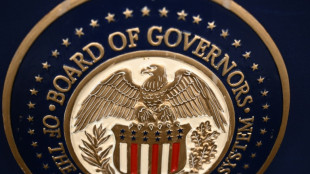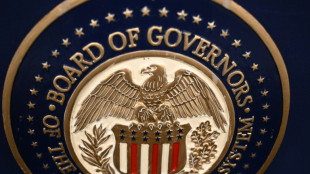

Transgender swimmer makes final bid for second US college title
Transgender swimmer Lia Thomas will have a chance to win a second US college title on Saturday after finishing fourth in qualifying for the 100-yard freestyle final in Atlanta.
Thomas, who competes for the University of Pennsylvania, will make the last swim of her controversial collegiate career at the National Collegiate Athletic Association (NCAA) Women's Swimming and Diving Championship.
Thomas, who swam on Penn's men's team before switching to the women's squad this season, became the first transgender athlete to win a top-tier NCAA crown when she won the 500-yard freestyle title on Thursday.
She finished fifth in the 200 free final on Friday.
Thomas was seeded 10th in the 100 freestyle but finished second in her morning heat in 47.37 seconds, her best time of the season, to qualify fourth overall for the final.
Virginia freshman Gretchen Walsh won Thomas's heat in 46.78, the fastest overall preliminaries time. The 19-year-old American won the 2019 world junior titles in the 50- and 100-meter freestyles and was second this week in the 50-yard freestyle and 100-yard backstroke.
Also into the final was Yale's Iszac Henig, a transgender man who swam a personal best 47.55 to claim the eighth and last spot in the championship race. Henig is eligible to swim in the women's meet because hormone therapy for the transition has not started.
Controversy has shrouded Thomas at the meet, with critics and some fellow swimmers saying she should not have been allowed to compete and has an unfair physiological advantage. Others say she should be allowed to compete freely as a woman.
Speaking after her Thursday victory, Thomas said she had tried to calm the controversy.
"I try to ignore it as much as I can, I try to focus on my swimming, what I need to do to get ready for my races and try to block out everything else," Thomas said.
Last month, governing body USA Swimming unveiled new guidelines that included a more stringent threshold for testosterone.
But the NCAA, the governing body for US college sport, decided those rules would not be applied to the championships, saying to do so would have "unfair and potentially detrimental impacts" on athletes preparing for the meet.
H.Dierckx--JdB



